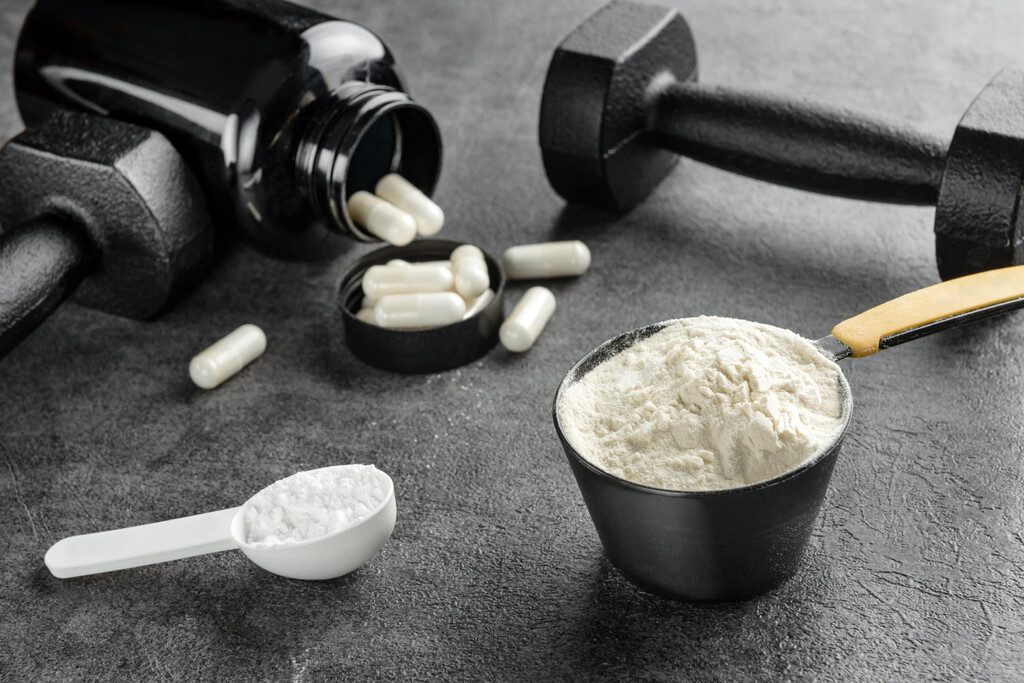Creatine, a natural compound found in muscle tissue and red meat/fish, boosts ATP production, enhancing athletic performance. Supplementing with creatine increases muscle strength, size, power (5-10% performance boost in high-intensity activities), and aids muscle growth and recovery by reducing fatigue. It also combats age-related muscle loss (sarcopenia) in older adults and shows promise in improving cognitive function, particularly short-term memory and reducing mental fatigue. However, understanding both benefits and potential drawbacks is crucial before use.
Table of Contents Show
Creatine is one of the most popular dietary supplements among athletes and fitness enthusiasts. Primarily known for its ability to enhance exercise performance, creatine also offers several other significant creatine benefits. However, understanding both the advantages and potential drawbacks is crucial before incorporating it into your routine.
Related post:
- Get Fit Faster: The Science-Backed Strategies
- Beetroot Health Benefits: 10 Reasons to Add Beets to Your Diet
- Gut Health for Athletes: Finding a Competitive Edge
What is creatine?

Creatine, a natural compound found primarily in muscle tissue, plays a vital role in producing adenosine triphosphate (ATP), the energy currency of cells. While the body produces some creatine, it’s also found in dietary sources like red meat and fish.
Supplementing with creatine offers numerous benefits, providing an easy way to increase energy levels and improve physical performance. These creatine benefits are why it’s so popular among athletes and fitness enthusiasts.
Exploring creatine benefits
Enhanced exercise performance
One of the most well-documented benefits of creatine is its ability to improve exercise performance. Research indicates that creatine supplementation can increase muscle strength, size, and power.
Studies suggest that athletes may experience a performance boost of 5% to 10% when using creatine, particularly in high-intensity activities like weightlifting and sprinting.
Muscle growth and recovery

Creatine supplementation offers numerous benefits beyond enhanced performance; it also promotes muscle growth. By providing additional energy for workouts, creatine allows individuals to train harder and recover more efficiently.
Moreover, it may help reduce muscle fatigue, enabling longer and more effective training sessions—all key creatine benefits for athletes.
Creatine benefits: Preventing muscle loss in older adults
Creatine may also play a crucial role in combating sarcopenia, the age-related loss of muscle mass and strength. Research shows that older adults who use creatine in conjunction with resistance training can gain more lean muscle mass compared to those who do not. This is particularly important as sarcopenia is linked to increased disability and a lower quality of life among the elderly.
Cognitive Benefits

Emerging studies reveal exciting creatine benefits extending beyond physical performance. Research suggests creatine may enhance brain function, particularly for tasks demanding short-term memory and quick thinking.
Some studies indicate creatine supplementation could reduce mental fatigue and improve overall cognitive performance, potentially benefiting older adults experiencing cognitive decline. These cognitive creatine benefits are a growing area of research.
Creatine benefits and potential concerns: A balanced view
Although creatine is generally regarded as safe for most healthy individuals, there are some concerns associated with its use.
Kidney health
One of the most common worries is the potential impact on kidney health. Some studies have suggested that high doses of creatine may increase markers of kidney strain in urine. However, it’s vital to note that these markers do not necessarily indicate kidney disease. Most healthy individuals can safely consume creatine at recommended doses without adverse effects.
Bloating and gastrointestinal discomfort

Another common side effect of creatine supplementation is bloating. This occurs when creatine draws water into the muscle cells, leading to water retention. To mitigate this, it is advisable to avoid excessive doses during the initial loading phase and stick to a maintenance dose of 3 to 5 grams per day.
Need a break from your intense workout routine? Plan your next outdoor adventure with ExoTrails! This app helps you easily find and book campsites that match your preferences, perfect for relaxing and recharging after a challenging training session. With a huge database of campsites and smart search filters, ExoTrails makes finding the ideal spot for your next escape simple and stress-free.
Conclusion
The numerous creatine benefits, including enhanced athletic performance, support for muscle growth, and potential cognitive enhancements, make it a well-researched supplement. While generally safe for healthy individuals, adhering to recommended dosages is crucial to minimize side effects.
Consulting a healthcare professional before starting creatine is advisable, especially for those with pre-existing conditions. Understanding both the creatine benefits and potential drawbacks ensures informed decision-making regarding its use. Follow our official Facebook page now to receive more interesting information.

Subscribe
Login
0 Comments
Oldest











